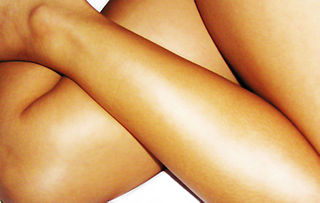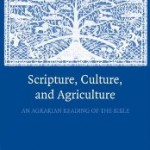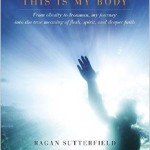 After recently re-reading Wendell Berry’s essay “Health is Membership” and being struck by its pertinency today, I asked a few friends to read the essay and write a Slow Church-related reflection on the essay. The is the third of these reflections by my friend Brian Volck, who is not only a gifted writer, but also a pediatrician. ~Chris
After recently re-reading Wendell Berry’s essay “Health is Membership” and being struck by its pertinency today, I asked a few friends to read the essay and write a Slow Church-related reflection on the essay. The is the third of these reflections by my friend Brian Volck, who is not only a gifted writer, but also a pediatrician. ~Chris
*** Read the previous “Health is Membership” reflection by Rachel Marie Stone
I’ve been teaching Wendell Berry’s essay, “Health is Membership,” in a medical school elective, “Literature and Medicine,” for over a decade, so I have reason to reread it often. Some day, perhaps, I’ll exhaust what it has to teach me, but that day has yet to arrive. On this, my latest reading, I’m struck by the seriousness with which Mr. Berry takes the human body. He’s certainly more serious about it than many in my profession.
I suppose that sounds absurd; physicians know more about and can do more things to and with the human body than “laymen.” Most of us go to doctors precisely because they have esoteric knowledge and sophisticated tools to make the body perform as we wish. This instrumental a view of doctor-patient encounters conceives of the body as a machine that optimally functions according to the will of its “owner,” though my profession has much to say about how owners should want their body-machines to behave. (For an introduction to the metaphysical and political assumptions underlying this highly effective form of social control, see Jeffrey Bishop’s The Anticipatory Corpse: Medicine, Power, and the Care of the Dying.
In his essay, Mr. Berry undercuts this at every opportunity. Examples include:
This, plainly, is a view of health that is severely reductive. It is, to begin with, almost fanatically individualistic. The body is seen as a defective or potentially defective machine, singular, solitary, and displaced, without love, solace, or pleasure.
and:
all… can be traced back to the old idea that our bodies are not very important except when they give us pleasure (usually, now, to somebody’s profit) or when they hurt (now, almost invariably, to somebody’s profit).
and:
The body alone is not, properly speaking, a body. Divided from its sources of air, food, drink, clothing, shelter, and companionship, a body is, properly speaking, a cadaver,whereas a machine by itself, shut down or out of fuel, is still a machine.
and, finally:
Where the art and science of healing are concerned, the machine metaphor works to enforce a division that falsifies the process of healing because it falsifies the nature of the creature needing to be healed.
I often see evidence of Berry’s argument in my hospital work: the sequestering of the “spiritual,” the all too easy division of patient from community, and vague appeals to holism and alternative therapies as quick fixes for medicine’s technological imperialism. In mistaking the body for a machine, “the science of medicine” misconceives what it can and cannot do, promising – though far less often delivering – technological mastery over the uncertainties inherent in the living organism. I find much of value in the current emphasis on “evidence-based medicine,” but that evidence neither tells us what a person is or even necessarily how to act in a specific case. “Medicine,” Berry writes, is a phrase I often use on hospital rounds, “is an exact science until applied.” Extrapolating from study data – however rigorous the methods – to a patient involves, in Berry’s words, “intuition, a sense of probability, ‘gut feeling,’ guesswork, and error.”
It’s that ominous final cadence, “guesswork, and error,” that sticks in my throat as a physician, and more so as a father. If research shows a medicine has a ten percent risk of causing a serious side effect in children and that side effect happens to my child, I’m unlikely to be consoled knowing that the medicine’s use was, after all, a reasonable bet. “Hindsight is 20/20,” runs the professional maxim, in which my colleagues and I imagine seeing the past from the attitude of gods, with cause and effect displayed in stark clarity. But medicine is not practiced on the past, and applying medical science to a particular patient in a particular time and place is often like squinting through a glass darkly.
Rereading Berry’s essay, I was reminded of the long subtitle of a recently published book, Never Pure: Historical Studies of Science as if It Was Produced by People with Bodies, Situated in Time, Space, Culture, and Society, and Struggling for Credibility and Authority. As an applied science, medicine has always been all of the above: embodied, situated, and struggling. In a habitual rush to forget this, various forms of science – medicine included – frequently claim to know more than is possible, typically by reducing material to its simplest, most controllable version (in medicine, even death and grief can be “managed”) and by bracketing certain matters as subjective, insoluble, and therefore “unscientific.” That these marginalized enormities are closest to the affections is not lost on Berry, nor on the celebrated physicist, Erwin Schroedinger, who wrote, “”Science puts everything in a consistent order but is ghastly silent about everything that really matters to us: beauty, color, taste, pain or delight, origins, God and eternity.”
Berry calls our attention to things that “really matter.” He does not confuse theoretical explanations as the thing itself, and would rather be present to the mystery of the body than render it theoretically controllable. The first, most astonishing mystery of the body is that it exists at all. The second is that it is limited, that despite the modern superstition that we choose our own way in the world, we are dependent on other bodies, other creatures, the soil, the planet, the sun, and all Creation.
Much of the second part of “Health is Membership” concerns the illusion of “informed consent,” a name that, intentionally or not, masks the blind faith most patients place in medical professionals. Most of what passes for bioethics nowadays distracts us from the faith and assumptions around which the medical profession constructs it imposing technological edifices. Of the four disembodied dogmas at the heart of contemporary American bioethics – autonomy, beneficence, nonmaleficence, and justice – the reigning champion is autonomy, a worthy thing to the extent such an abstraction says anything about the contingent, situated moment in which a person arrives at a decision. Two decades before “Health is Membership,” Berry wrote, in The Unsettling of America, “There is, in practice, no such thing as autonomy. Practically, there is only a distinction between responsible and irresponsible dependence.”
It is the body, the only means through which we can live out our dependence responsibly, that remains for us the sole locus for the many blessings that dependence brings, including love. Human bodies, Berry insists, are nothing like isolated machines serviced so as to reliably perform according to each individual’s disembodied, limitless, sovereign will. The body, precisely because it is material, limited, and dependent, is the one mortal vessel of all our affections. It’s the starting place at which my troubled profession of medicine – noble, vain, and disordered – too often fails to arrive. I, too, fail more often than I care to admit.
Part of my debt to Wendell Berry is that he calls me to account, to love and honor the body before and around me, visible in all its varied members. Even if I never get it right, I’ll keep reading him and applying the lesson. I hope more doctors, patients, churches, and families will do the same.












